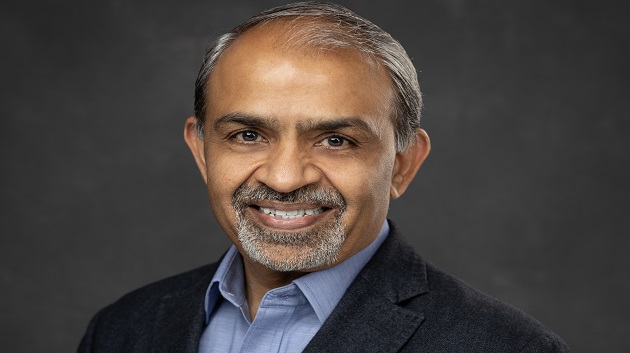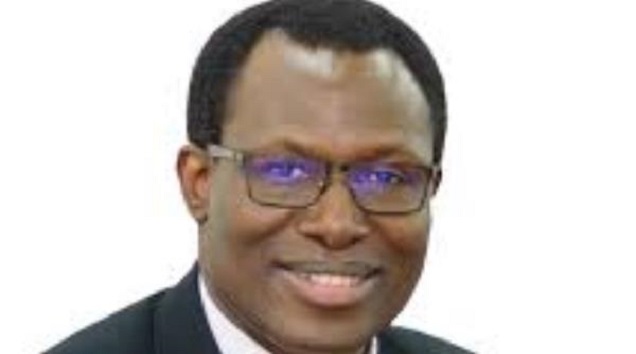Telecom
Trusted Data to Tip Balance between Success, Failure This Year

The wheels are turning ever faster in the telecom industry. For every year, there are new and often unexpected developments.
As we face another eventful year, industry expert David King, CEO of leading data centre and power management systems supplier Flexenclosure, describes which developments had the biggest impact in 2014 and what we can expect from 2015.
A year ago, when I was asked which trends would have a significant impact on the mobile industry in 2014, I predicted that there would be an increasing interest in prefabricated modular data centres to cope with the expected data boom in developing countries.
One year later, we can see that prefabricated modular data centres have proven to be just as flexible, energy efficient and quick to deploy as manufacturers had promised and customers had hoped, and many telecom companies and mobile operators have chosen this path – ACS Angola, Vodacom Mozambique and MTN Côte d’Ivoire being just a few examples in emerging markets.
Another trend that I predicted was a renewed focus on increasing reliability and reducing operating expenses when powering mobile base station sites.
In the last 12 months we’ve seen that this is indeed a critical combination for the specialised tower companies that are increasingly taking over ownership and management of these sites, as the success of their core business depends much more on the long term reliability and cost efficiency of their power equipment than it did to the mobile operators themselves.
Implementation of green power solutions that reduce diesel fuel consumption has been one result of this trend, as well as efforts to increase telecom sites’ reliability and uptime.
So what’s in store for 2015? Here are the three trends I think will have a major impact on the ICT industry in the year ahead:
1. 2015 is the year that prefabricated modular data centres will truly come of age. As the data boom continues to accelerate globally, prefabricated facilities will be increasingly adopted not only by telcos, but also by colocation and global Internet companies worldwide, driven by their ability to be quickly and easily expanded as required.
The data centre colocation market has been quietly putting down roots in Africa and will now enter a growth phase – with prefabricated facilities giving colocation providers the ability to precisely time facility expansion, thus allowing them to maintain a high level of utilisation (return on capital) while avoiding missing out on new customers due to a lack of capacity.
At the same time, global Internet companies will take increasing advantage of the capital-efficient expansion opportunities and risk-free build process offered by prefabricated data centre buildings.
And of course, an additional benefit is that prefabricated data centres can offer very high quality and price competitive solutions compared to traditional brick and mortar buildings. This previously tended to drive demand mainly in developing economies, but we will now see exponential growth in the adoption of prefabricated modular data centre solutions from developing and developed nations alike.
2. In the mobile telecom site arena, we will see specialised towercos continuing to take over responsibility for tower sites from the mobile operators.
For the towercos, operational cost savings are key to driving business profitability, while for the operators it’s network uptime. Power solutions that can reduce diesel-related expenditure in areas where grid power is unreliable or unavailable, while at the same time guarantee network uptime, will therefore be in much demand and drive significant innovation.
To ensure that this combination of operational reliability and guaranteed network uptime can be delivered, power equipment vendors will need to develop long-term partnerships with managed service companies and we will see new energy service companies (ESCOs) start to establish themselves in many markets. T
he broader presence of ESCOs will in turn reinforce the green site power trend, as these companies look to invest in the most cost efficient power equipment for generation and sale of power to the telecom operators under long term contracts.
3. As mobile towerco networks increase in both size and the number of tenants hosted, the availability of trusted site data will drive the difference between profitability and failure. To keep control over and reduce network energy costs (which can constitute up to 60 per cent of operating expenses for tower companies), as well as to prevent system failures, tower companies need to be able to trust their data and will invest in software-driven intelligent monitoring systems that are fully integrated with the power systems right from day one.
These solutions will give site owners and managers the ability to broadly monitor their entire networks as well as to perform deep dive analyses on a site-by-site basis. This will ensure that they understand the status of their equipment at all times, thus giving them full control over their assets and business.
David King, CEO, Flexenclosure, a designer and manufacturer of prefabricated data centres and intelligent power management systems for the ICT industry. Mr King has decades-long experience from C-level work with many international high-tech companies, several in emerging markets.
Telecom
WhatsApp to Start Showing more Adverts in Messaging App

WhatsApp is launching three new ad features in a global roll-out across the messaging app.

The Meta-owned platform said the new ads will not be shown in the same place as people’s private chats, nor will the contents of their messages – which are encrypted – be used to decide which ads to display.
WhatsApp will instead use the country, city and language of the user, as well as how they interact with other ads and which channels they follow, to drive suggested content.
But people who have chosen to link their WhatsApp account to Facebook or Instagram will see more personalised ads.
The new ad features will appear in a section called Updates, which is a separate tab at the bottom of the app.
WhatsApp claims to have 1.5 billion users globally.
Businesses with channels will be able to choose to promote ads in the Updates section to attract new followers, and also charge a subscription to access extra content.
WhatsApp will eventually take a 10% commission of that fee, and there may also be extra costs on top of that taken at the app store level depending on the size of the business.
Firms will also be able to advertise in the form of a status update, which looks similar to an Instagram story and will link through to start a chat if clicked on.
Social media expert Matt Navarra told reporter that Meta is “laying the foundation for WhatsApp to finally become a monetisable platform at scale”.
But “monetising the periphery” of WhatsApp, while keeping personal chats private, would not be without risk for the company, he added.
This could particularly be the case in markets like the UK and Europe, he said, where the app is viewed primarily as a messaging tool with less appetite for content feeds or adverts.
“Any perception that the app is becoming noisy or Facebook-ified will spark backlash,” he said.
How does WhatsApp make money?
‘Natural extension’
It’s no coincidence that the new features bring WhatsApp more in line with Meta’s other platforms Facebook and Instagram.
“Obviously there’s overlap,” said WhatsApp boss Will Cathcart.
“We have stories on Instagram and stories on WhatsApp, and we now have a way for businesses to promote themselves in both, and we think that’s a good thing.”
He said he believed the move was a “natural extension of messaging services” and not dissimilar to features of rival apps such as Snapchat and Telegram.
For Mr Navarra, it also reflects a wider shift in the social media landscape.
“The feed is dying, public sharing is down, people are retreating into DMs and Stories in small groups,” he said.
“Meta’s trying to turn WhatsApp into a platform without users realising it and if they move too fast or it starts to feel like another ad network, people might disengage or maybe worse, distrust the app.”
Telecom
Airtel Africa Reinforces Commitment to ESG Impact while Advancing Digital, Financial Inclusion Across 14 Markets

Airtel Africa, a provider of telecommunications and mobile money services across 14 African countries, has published its Sustainability Report 2025, reaffirming its corporate purpose of transforming lives by expanding access to essential digital services, supporting inclusive economic growth, and advancing environmental stewardship throughout its operations.

In 2024/25, Airtel Africa made significant progress in bridging the digital divide, advancing financial inclusion and supporting underserved communities through strategic investment in connectivity, people, and sustainable practices.
Airtel Africa’s chief executive officer Sunil Taldar said: “This year’s achievements, from connecting 2,176 schools through the UNICEF partnership to reaching 44.6 million Airtel Money customers with near-gender parity, prove that the power of technology is a catalyst for gender balance. At Airtel Africa, we believe to not only expanding networks but we’re also building bridges to education, financial security and sustainable growth for Africa’s next generation.”
Key ESG highlights:
- Providing underserved communities with access to reliable network and connectivity:
- 2% population coverage across 14 markets (up from 80.4% in 2023/24)
- 36,159 4G infrastructure sites, including more than 15,300 in rural areas.
- Continued investment of $670m in network expansion and modernisation to boost speed, coverage and capacity.
Airtel Africa is connecting the unconnected, giving millions access to voice, data and mobile money services – driving economic opportunity and enhancing access to essential services.
- Bridging the digital divide, driving financial inclusion and addressing gender inequality
- 4 million data customers (+14.1% vs 2023/24)
- 6 million Airtel Money customers (+17.3%), with 44.2% Airtel Money customers who are women (+6.2% vs 2023/24)
- 7 million Airtel Money agents in our distribution network (+23.4% vs 2023/24)
- 2% women in the workforce across the Group (up from 28.3% vs 2023/24)
Through inclusive digital services and affordable financial products, Airtel Africa is empowering individuals and communities, particularly women, to fully participate in the digital economy.
- Unlocking potential through education and employment opportunities
- 2,176 schools connected to the internet free of charge (up from 1,201 in 2023/24)
By providing free connectivity and online resources to schools, Airtel Africa is helping young people reach their full potential. A growing agent network also supports employment and entrepreneurship opportunities across its footprint.
- Minimising the impact of our operations on the environment
- 500 off-grid sites converted to on-grid power, reducing reliance on diesel generators.
- 93% of total waste recycled (+3% vs 2023/24)
Airtel Africa is committed to reducing the impact of its operations on the environment through investment in renewable energy solutions and responsible waste management.
The Sustainability Report 2025 adheres to the Global Reporting Initiative (GRI) and GSMA telecommunications industry standards.
Telecom
ALTON Clarifies on Migration to End-User Billing for USSD Services

The Association of Licensed Telecom Operators of Nigeria (ALTON) wishes to inform the public and all mobile subscribers that the migration to the End-User Billing (EUB) model for Unstructured Supplementary Service Data (USSD) services will take effect from Wednesday, 18th June 2025.

This transition marks a significant milestone in the evolution of Nigeria’s digital financial ecosystem and is being implemented per the Determination of USSD Pricing and Services issued by the Nigerian Communications Commission (NCC).
The Determination was developed in collaboration with the Central Bank of Nigeria (CBN) and other key stakeholders to ensure a sustainable, transparent, and customer-friendly framework for USSD service delivery.
USSD services play a vital role in expanding access to financial services, particularly for unbanked and underbanked populations. However, the previous corporate billing model—where banks were billed by telecom operators—led to prolonged disputes over unpaid charges, service interruptions, and uncertainty for customers.
To address these challenges, the NCC’s 2025 Determination introduced the End-User Billing model, which allows mobile network operators to charge customers directly for USSD sessions.
To achieve the implementation of the EUB model, the CBN and NCC have stipulated that only banks that meet certain regulatory and operational conditions are permitted to migrate. One of which is the notification to customers of the billing change in advance, and to ensure that customers are fully aware of the new airtime-based charges and how they will be applied.
Accordingly, under the new billing model, USSD charges will be deducted directly from the customer’s airtime balance, not from their bank account, and each USSD session will attract a charge of ₦6.98 per 120 seconds. To enjoy the service, customers will receive a prompt to opt in and approve the charge before any deduction is made, and there will be no double billing as billing will only occur for successful sessions via airtime deductions.
ALTON wishes to reiterate that this change does not affect the availability or functionality of USSD banking services, as customers can continue to use their bank’s USSD codes as usual, provided they have sufficient airtime.
To ensure a smooth transition, ALTON advises customers to follow these support guidelines:
–For access issues (e.g., inability to dial USSD codes), contact your mobile network operator.
– For transaction-related issues (e.g., failed transfers or service errors), contact your bank’s customer service.
– Both banks and mobile network operators are required to provide responsive support and mensure that customers can access and use USSD services without disruption.
Alternative digital banking channels such as mobile apps, internet banking, and ATMs remain fully operational and available for customer convenience.
ALTON reiterates its commitment to working closely with the NCC, CBN, financial institutions, and other stakeholders to ensure that this transition is seamless, equitable, and beneficial to all parties, especially the end users.
We remain dedicated to promoting transparency, operational efficiency, and consumer protection across Nigeria’s telecommunications and digital finance sectors.

 News3 days ago
News3 days agoWhy I am vying for AFRINIC board seat in 2025 election – Terry Edet

 Telecom2 days ago
Telecom2 days agoGSMA, Mobile Industry Call for Strengthened Action to Advance Child Online Protection in Africa

 E-Financial3 days ago
E-Financial3 days agoFidelity Bank ED, Kevin Ugwuoke takes over as President of Risk Managers Association

 Telecom3 days ago
Telecom3 days agoCrypto Exchange MEXC Rolls Out P2P Support for Naira, Birr, and Rupee

 News1 day ago
News1 day agoDigital Africa Global Consult, NDPC Partner on Ground-Breaking “Nigeria Data Challenge” Initiative

 General News2 days ago
General News2 days agoTD Africa, HP Strengthen Partnership to Advance Africa’s Tech Ecosystem

 Telecom18 hours ago
Telecom18 hours agoALTON Clarifies on Migration to End-User Billing for USSD Services

 General News3 days ago
General News3 days agoAirtel Concludes Nationwide Environment Week with Market Clean-Up by Employees

























